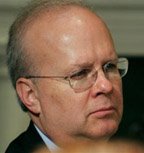The New York Times had an interesting article this Sunday about the CIA. It suggests that by responding to the huge demand for immediate intelligence, we as a nation have lost the means to generate strategic intelligence -- the kind of stuff that gives a clear picture of the war we use tactical intelligence to win.
The greatest problem in the eyes of some C.I.A. and other intelligence officials who served before and after 9/11 is that the agency can no longer produce strategic intelligence. It can no longer advise the president on the wisest ways to use military and diplomatic force. Its ability to see over the horizon has dwindled until its thousands of analysts can't see past the end of their desks.
The big picture has been bumped by spot news. Strategic intelligence is the power to know your enemies' intentions. Spot news is what happened last night in Waziristan. Drowned by demands from the White House and the Pentagon for instant information, "intelligence analysts end up being the Wikipedia of Washington," John McLaughlin, the deputy director and acting director of central intelligence from October 2000 to September 2004, said in an interview.
Why is this important? Because the CIA is the only civilian spy agency we have. The rest of our intelligence assets are dominated by the Pentagon, which does a fine job but has a different focus.
Once upon a time in the cold war, the C.I.A. could produce strategic intelligence. It countered the Pentagon's wildly overstated estimates of Soviet military power. It cautioned that the war in Vietnam could not be won by military force. It helped keep the cold war cold.
"You need to have a civilian check on the military in American society," said Richard L. Russell, a decorated C.I.A. analyst who now teaches senior diplomats and military officers at the National Defense University. "It's healthy for the president to have a second opinion on military affairs."
Instead, the demand for up-to-the-second data is turning the CIA into an adjunct of the military -- not culturally, but practically.
The agency is becoming "a battlefield combat support agency," Mr. Russell said. C.I.A. officers in Baghdad and at headquarters are pinned down answering daily tactical questions of the military: How strong is that bridge? How wide is that road?
Those are not the big strategic questions: How can the United States drain the swamp that breeds terrorism instead of killing snakes? What are the bricks and mortar for building democratic institutions in undemocratic states? Those questions are unanswered. "The C.I.A. becomes so consumed by the current crisis that it can't anticipate the next one," Mr. Russell said. "It becomes so balkanized that it becomes blinkered. Everyone's looking at their blades of grass and nobody's surveying the forest."
There are lots of reasons for the change in focus at the CIA, from the end of the cold war to the rise of the 24-hour news cycle. But it points up the growing lack of a counterbalance to the military in intelligence matters, and the ongoing inability to define exactly what it is we're fighting and what the best way to fight it might be.
This isn't about lack of data; the article notes that analysts never see 95 percent of the intelligence we collect. It's about lack of intelligent assessment of the incredible amount of data we have.
"They just don't have substantive experts," Mr. Russell said. "Name five C.I.A. experts on anything. I can't do it."
There's no point in fighting a war if we don't know who we're fighting, why we're fighting and why the current strategy is the best one. We don't need more data. We don't need more target analysis. We need people who can understand the world and explain why things work the way they do. Only then can we make informed choices about how best to defeat terror.
Bush has tried to address the problem by hiring more analysts. But it takes time to train them, and unless we change their mission, it won't help.
Carl W. Ford was an assistant secretary of state for intelligence from 2001 to 2003, capping a 38-year career that included senior posts at the Pentagon and CIA. As he put it:
Without fundamental changes in the ways American intelligence is analyzed and reported, Mr. Ford said, "we will continue to turn out the $40 billion pile of fluff we have become famous for."
"What we don't need is more money and people, at least not for now," he said. "Give us $20 billion more a year and we will give you just that much more fluff."
If this is true, than this represents a massive failure of our intelligence overhaul. If we didn't stop and think about what kind of intelligence we needed, and then set up the structure to provide it, we've wasted much of the past five years. And perhaps that failure helps explain the many mistakes we've made during that same time. Because if the administration didn't demand that its spies ask the right questions, it was never going to get the right answers.
I haven't used the words "Bush administration" and "incompetence" in a sentence for a while. But it may be time to dust them off again.
terrorism, CIA, intelligence, politics, midtopia


